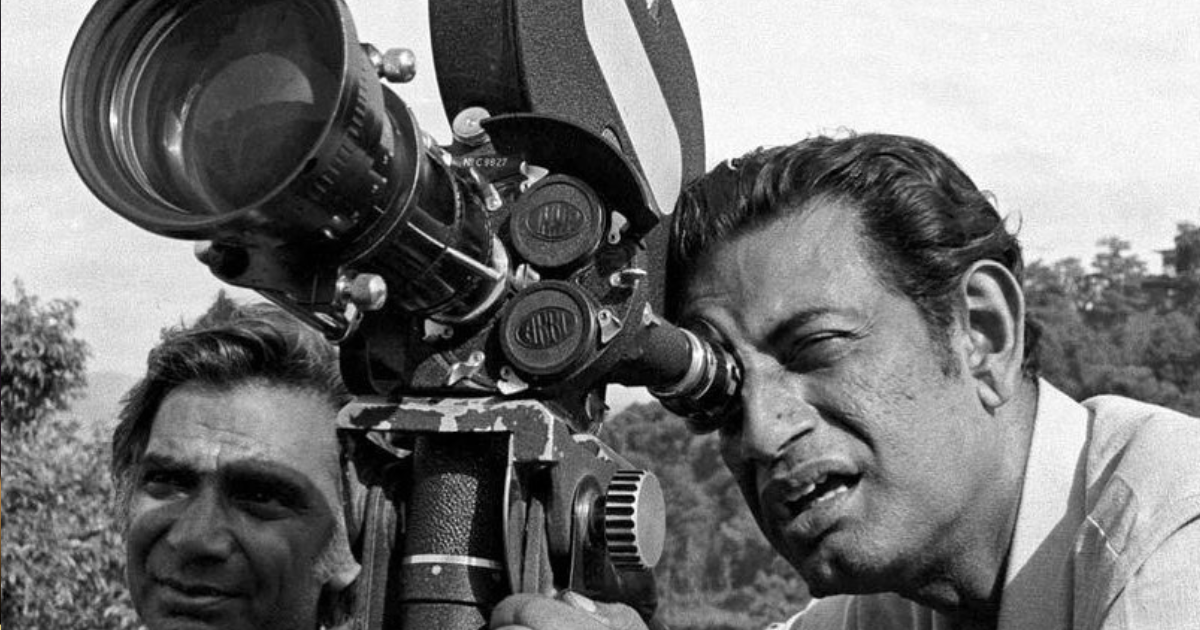The greatest man behind the scenes
Satyajit Ray – the director who could make films out of nothing

“Not to have seen the cinema of Ray means existing in the world without seeing the sun or the moon.” – Akira Kurosawa.
Satyajit Ray’s childhood was marked by the absence of his father, who passed away when he was just two years old. Raised by his mother amidst financial hardship, the future filmmaker was a quiet and shy child. After high school, he enrolled at Presidency College to study natural sciences. By his third year, he switched to economics – yet neither science nor economics truly sparked his passion.
Tired of uninspiring studies, Ray once locked himself in his room and spent days watching films and listening to classical music. After hours immersed in cinema, he realized he wasn’t drawn to acting but to something else – something behind the scenes. Names of world-famous film directors like Ernst Lubitsch, John Ford, Frank Capra, and William Wyler began to take root in his mind.
When Ray graduated from Presidency College in 1939, he told his mother he no longer wanted to pursue science or economics. Shocked, she asked: "What will you eat if you don’t study?"
"I’ll eat like everyone else. I’ll work. I’ll eat from that salary," the future director replied.
Ray’s films are known for their attention to detail and profound humanism. They embodied a synthesis of East and West – steeped in Indian culture, yet influenced by Italian neorealism. Inspired by directors like Vittorio De Sica and Roberto Rossellini, he explored Western art forms to deepen his cinematic worldview.
Ray’s work is so open and accessible that it has the power to move and resonate with anyone. “A bad film is one that prioritizes style over substance,” the director once said.
His films explore the human condition, character, social issues, and other vital themes. His ability to capture the nuances of everyday life and portray them on screen with remarkable simplicity stands as a testament to his mastery as a storyteller.
One of Ray’s first films, “Pather Panchali” (Song of the Road), made in 1955, became a landmark in world cinema and brought him international fame, receiving a standing ovation at Cannes. Film critic Philip French later called it “one of the greatest films ever made.”
His films explore the human condition, character, social issues, and other vital themes. His ability to capture the nuances of everyday life and portray them on screen with remarkable simplicity stands as a testament to his mastery as a storyteller.
One of Ray’s first films, “Pather Panchali” (Song of the Road), made in 1955, became a landmark in world cinema and brought him international fame, receiving a standing ovation at Cannes. Film critic Philip French later called it “one of the greatest films ever made.”
Ray’s films often expressed criticism of government and dominant ideologies. His point of focus was always the individual. He believed that the ability of a single person to remain honest and principled, even in the darkest times, was the only true answer to the challenges of society. Through his work, he aimed to show that the integrity of one person could outshine a world of injustice.
“Mahanagar” (The Big City), “Devi” (The Goddess), “Teen Kanya” (Three Daughters), “Charulata”, “Aranyer Din Ratri” (Days and Nights in the Forest), “The Apu Trilogy” (The World of Apu), “Pather Panchali” (Song of the Road) – in all of these, Ray gave particular attention to female characters. They were never secondary to men and were portrayed with complexity and depth.
Despite his international acclaim, Ray’s films didn’t always receive the same resonance at home. Nationalists often mocked his work, labeling it as mere romanticism of India. But despite this, the death of the great Indian filmmaker in 1992 shook Kolkata to its core. Today, many critics trace the significant transformations in Indian cinema back to the legacy of Satyajit Ray. His quest to depict the multifaceted reality of his homeland on screen truly succeeded.


